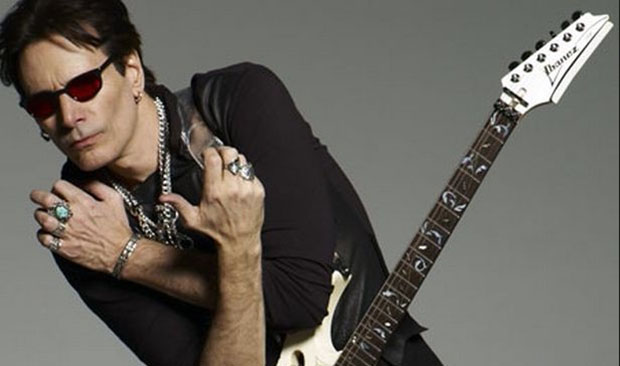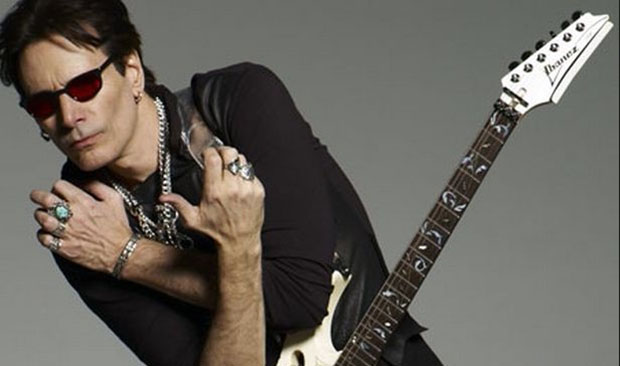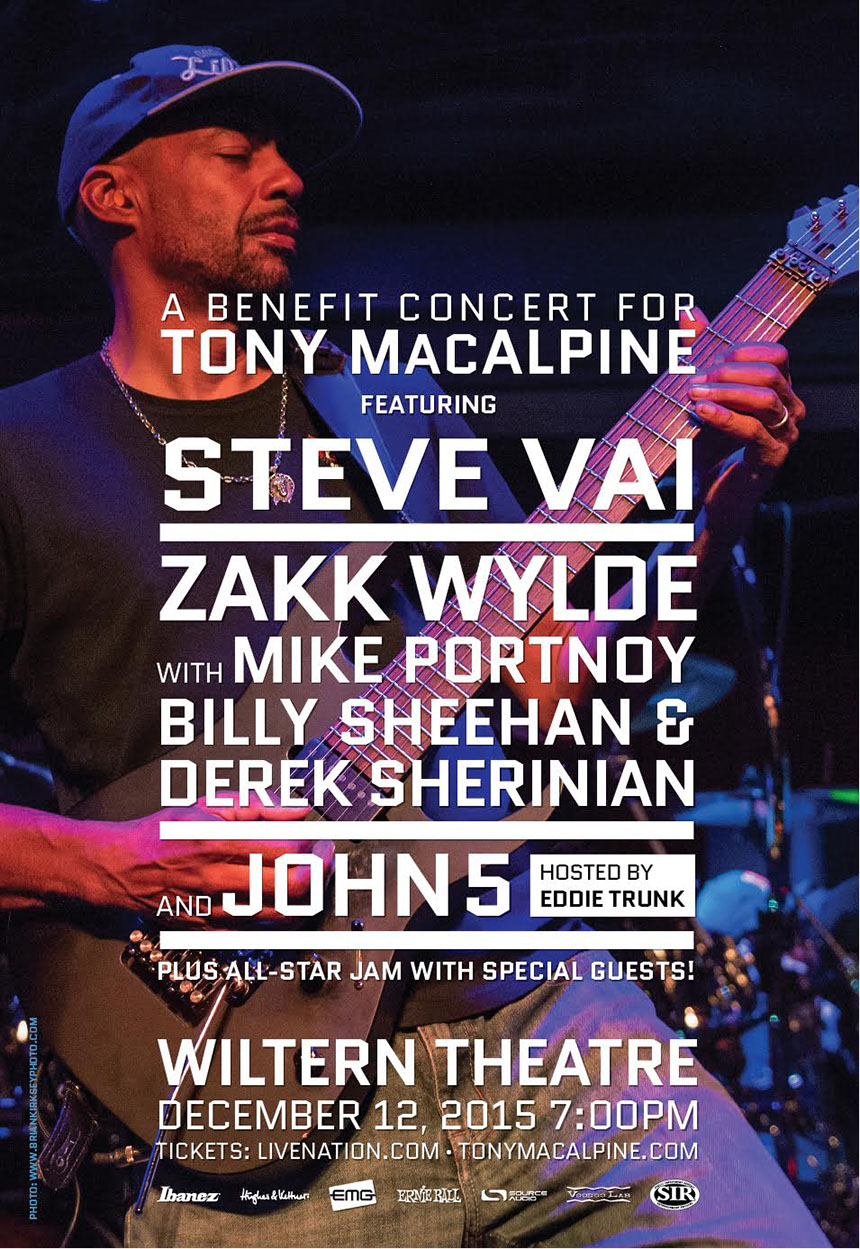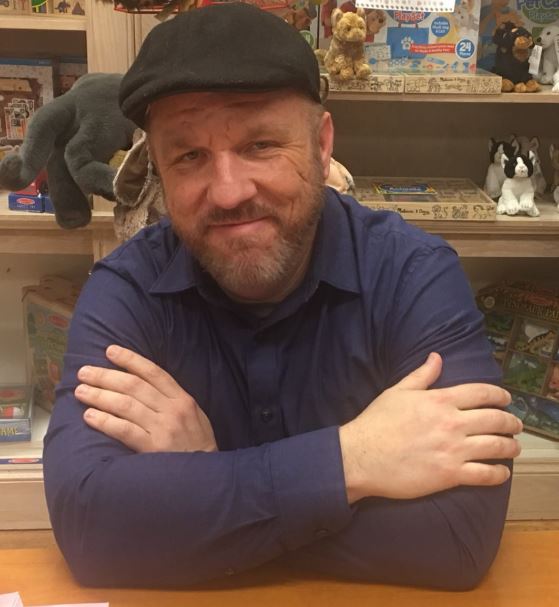Steve Vai Talks Tony MacAlpine Benefit Show, Upcoming ‘Passion and Warfare’ Remaster and Next Vai Academy

As recently reported, guitar greats Steve Vai, Zakk Wylde and John 5, along with drummer Mike Portnoy, bassist Billy Sheehan and keyboardist Derek Sherinian, are joining forces to play a benefit concert for guitar and keyboard virtuoso Tony MacAlpine, who was diagnosed with colon cancer earlier this year.
The show will take place December 12 at the Wiltern Theatre in Los Angeles.
In addition to this extraordinary musical event, Vai, John 5, Joe Bonamassa, Steve Stevens, Paul Gilbert, Steve Lukather and Joe Satriani have all graciously donated a few of the their personal guitars to be auctioned during the event. MacAlpine’s gear manufacturers—Ibanez, Hughes & Kettner, EMG Pickups, Ernie Ball, Source Audio and Voodoo Lab—also have donated equipment to be raffled.
All proceeds will assist MacAlpine and his family.
Tickets for the show are available here.
For fans who are unable to make the show but still want to contribute, a GoFundMe campaign has been set up for MacAlpine. You can contribute to the fund here.
I recently spoke to Vai about the event—dubbed the Benefit Concert for Tony MacAlpine—and a lot more in this exclusive interview.
Get The Pick Newsletter
All the latest guitar news, interviews, lessons, reviews, deals and more, direct to your inbox!
GUITAR WORLD: Tell me about your relationship with Tony MacAlpine and how you guys met.
Back in the Eighties when there was this emergence of virtuoso-style guitar players, there was this handful of guys that had extraordinary chops and were always raising the bar. Tony was a part of that movement in a big way. He made some excellent records that really showcased his tremendous guitar finesse and virtuosity.
So I had always known of him, but it wasn’t until years later that we actually met. I was putting a band together and needed a guitar player who could also play keyboards, and I had heard that Tony could play some keyboards. I also knew having someone like Tony in the band would bring everything to a whole different level. It worked out great and we had so much fun. Tony’s a lovely guy and it was such a pleasure to tour with him. Some people are just naturally gifted, and Tony’s one of them.
So when Mike Mesker [Tony’s manager] called me about the benefit, I was completely on board. It’s since snowballed into what's going to be an absolutely incredible event to raise money to help Tony. There’s a tragedy in it, but there’s also the divine shining through from all the love and support he’s getting from everyone he’s worked with and who’s supported him.
Was there anything you didn’t already know about Tony that surprised you?
When we were on tour, we were at a venue where they had a piano set up in the back room, and I remember hearing this piano playing from around the corner. At first, I thought it was a concert pianist that had somehow been left over from the night before. But when I go around the corner there’s Tony playing this Chopin etude absolutely flawlessly. Just like an accomplished concert pianist with tremendous accuracy and emotional investment. It was something I never expected. After he had finished, I said, “What the heck was that?” He told me it was a Chopin etude. I asked him if he could play some more and that’s when he said, “Which one? I know them all.” [laughs].
Thirty years ago, you, Billy Sheehan and Gregg Bissonette got together to form the nucleus of David Lee Roth’s band after he acrimoniously left Van Halen. How did that come about?
As a teenager, I was really into Frank Zappa and composition, but I had also always fantasized about being on the big rock stage and jumping around like crazy and playing to thousands of people. At the time, that was the most coveted gig for a guitar player. I had opportunities to audition for other big rock bands but none of them really felt right. But then I got call from Billy Sheehan, who said, “Dave Roth is looking for a guitar player and I hipped him to you.” I don’t know what it was but as soon as Billy said those words I was like, “Yep. That’s going to be my gig!” I can’t explain it. There was just never any doubt. As soon as Billy said it, that was the pull and it took me about one second to think about it and say yes.
What was it that attracted you to the gig?
The reason it was alluring was because I loved Van Halen. Dave was the quintessential rock star and I loved the idea of being on the side. It was an amazing situation to be in at the time, and we played our asses off. Everything was about playing as good, hard and crazy as you possibly could while still being a showman. Looking back at the Eighties, I was so lucky to be a part of that.
What can you tell me about you plans to revisit Passion and Warfare?
I’m big for rehashing the old stuff. When Passion and Warfare came out 26 years ago, digital didn’t really exist. It was all cassettes and vinyl. Then when the CDs came along, the converters they used were pretty inferior to what’s being used today. So we’re going to remaster Passion and Warfare with all of the newest modern technology.
I’ve also always been a guy who’s loved working out of his house end having my own studio and equipment. Over the years, I’ve amassed mountains of recordings and snippets of songs and ideas. There was a very fertile period between Flex-Able and Passion and Warfare where I was continuing to write, have bands and record. If you listen to Flex-Able, that record is very innocent and playful. I was working with Zappa at the time, so there was a lot of his influence there. Then if you listen to Passion and Warfare, it sounds like two different guys completely. This separate disc I’m including in the package will be a full record of unreleased material. It’s music that was either tracked or written between Flex-Able and Passion and Warfare. It’s a bizarre, beautiful record and in a way, it’s the missing link. It’s like “Cro-Magnon Vai” or something. [laughs].
Do you have plans to do another Vai Academy?
Yes, but not in the summer. I’ll be touring all summer and we’re moving it to January 2017. There are lot beautiful places in the South that are warm and are great resort settings. Since there are so many great camps in the summer, this also gives people a little more choice economically.
We always have wonderful clinicians and artists who come and give classes. The first theme was about building a song, recording it and getting it out to the world and marketing it. That song—called “Flash Mob”—was actually just released on iTunes. It has a 150 guitar players playing this melody, and the seniority of all of these players is just beautiful. We built that song at the camp and now it’s available.
This year’s theme was about the guitar itself, where I had luthiers come in along with various other professionals talk about the construction of the guitar. I’ve got a great concept for this next one. Whenever I speak and give Alien Guitar Secrets master classes, I’m usually reserved on the academics of the guitar, like technique. I talk about it, but more about things I’ve recognized during my career that were vital and really helpful. Moments of clarity and uncertainty. What I discovered was that there’s an academic technique level in the way that you approach your instrument, but there’s also something much deeper that comes from the creative element in you. That’s what I’ll be focusing on for this next Vai Academy. The working title is “Technique and Beyond." I’ll be talking technique in many of the classes, but the other half is going to be based on going deeper than the technique and using it as a tool.
In terms of the concert for Tony, what are you most looking forward to?
On one level, it’s an opportunity to get together with a bunch of friends and great players—for another friend. But the thing I’m looking forward to goes well beyond that. Whenever you’re with a group of people doing something like this for someone you care for, there’s this purveying atmosphere of charity, and everybody acts differently. It’s a whole different atmosphere than a regular concert or a jam in a club. The audience, the venue, the musicians, the way the music performs and the way that it comes off your fingers; everything is affected by this beautiful, collective consciousness of charity. That’s what I’m really looking forward to because that’s about as delicious as it gets.
For more about Vai, visit vai.com.
James Wood is a writer, musician and self-proclaimed metalhead who maintains his own website, GoJimmyGo.net. His articles and interviews are written on a variety of topics with passion and humor. You can follow him on Twitter @JimEWood.


James is a guitarist and freelance writer who's interviewed some of the biggest names in music. He is the author of four books and his writing credits include work for Guitar World, AXS and Yahoo! as well as for his hometown newspaper where he writes on a variety of topics with both passion and humor. As a guitarist, he's performed everywhere from local bars and nightclubs to some of the biggest stages in front of thousands of music fans.
“I just learned them from the records. I don’t read tabs or anything, I don’t read music – I learned by ear”: How a teenage Muireann Bradley put a cover of Blind Blake’s Police Dog Blues on YouTube and became a standard bearer for country blues
“The Strat was about as ‘out’ as you could get. If you didn’t have a Floyd Rose, it was like, ‘what are you doing?’”: In the eye of the Superstrat hurricane, Yngwie Malmsteen stayed true to the original











